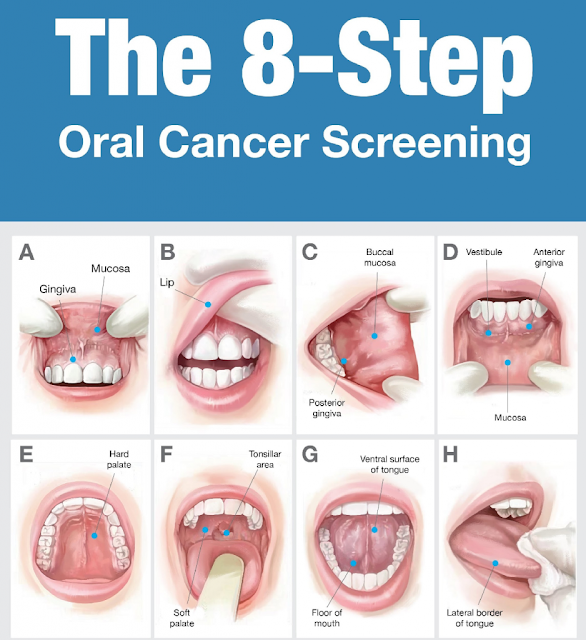Oral cancer is a serious disease that can affect the mouth, lips, tongue, throat, and other areas in and around the oral cavity. According to the American Cancer Society, more than 54,000 new cases of oral cancer are diagnosed in the United States each year. While the disease can be life-threatening, early detection and treatment can significantly improve outcomes. Knowing the warning signs of oral cancer can help you identify the disease in its early stages and seek prompt medical attention.
What are the signs of oral cancer?
Oral cancer can sometimes develop without any noticeable symptoms, especially in the early stages. However, there are several signs and symptoms that may indicate the presence of oral cancer. These include:
Persistent mouth sores: Sores or ulcers in the mouth that don't heal within a few weeks can be a warning sign of oral cancer.
Persistent pain in the mouth: Pain or discomfort in the mouth or throat that persists for an extended period can also be a warning sign.
White or red patches in the mouth: White or red patches on the gums, tongue, or lining of the mouth can be a sign of oral cancer.
Difficulty or pain when swallowing: Trouble swallowing or pain when swallowing can be a symptom of oral cancer.
Changes in speech: Changes in the way you speak, such as slurring your words or experiencing hoarseness, can be a warning sign of oral cancer.
Loose teeth: Oral cancer can cause the loosening of teeth in the affected area.
Unexplained weight loss: Sudden and unexplained weight loss can be a symptom of oral cancer.
If you notice any of these symptoms, it's important to see your dentist or healthcare provider right away for evaluation. Early detection and treatment are key to improving the outcome of oral cancer.
What puts me at risk for oral cancer?
Researchers aren’t exactly sure what causes oral cancers. But scientists now believe that cancers start after there’s damage or mutations in the genetic code that controls cell growth and death.
These factors are known to increase your risk of developing oral cancer:
Tobacco use: Smoking cigarettes, cigars, or pipes, and using smokeless tobacco (such as snuff or chewing tobacco) can significantly increase your risk of developing oral cancer.
Excessive alcohol consumption: Drinking alcohol in excess can also increase your risk of developing oral cancer, especially when combined with tobacco use.
Age: Oral cancer is more common in people over the age of 45.
Gender: Men are more likely than women to develop oral cancer.
Sun exposure: Prolonged exposure to the sun can increase your risk of lip cancer.
Poor oral hygiene: Poor oral hygiene and dental health can also increase your risk of developing oral cancer.
HPV infection: Infection with the human papillomavirus (HPV) can increase your risk of developing oral cancer, especially in the oropharynx (back of the throat).
Family history: Having a family history of oral cancer or other types of cancer can increase your risk of developing the disease.
It's important to note that not everyone who develops oral cancer has these risk factors, and not everyone with these risk factors will develop oral cancer. However, being aware of these risk factors can help you take steps to reduce your risk and undergo regular screenings for early detection.
The 8-Step Oral Cancer Screenings
As with any cancer, early detection and diagnosis is key; it’s important for patients to see an oral healthcare professional regularly, particularly if they are in the high-risk groups — those who use tobacco, abuse alcohol, or have been exposed to HPV. Oral cancer is 90% curable when found in its early stages. Unfortunately, 70% of oral cancers are diagnosed in the late stages, III and IV, leading to a five-year survival rate of 57%.Minimizing your risks
Cancers of the mouth are among the most preventable types of cancers. The number one thing you can do to prevent oral cancer is to never start smoking, or quit smoking if you currently do.
You can also reduce your risk by:
- limiting your exposure to the sun and wearing SPF lip balm
- eating a balanced, well-rounded diet of fruits and vegetables
- drinking in moderation, if you drink alcohol
- removing your dentures at night and cleaning them every day
- practicing good oral health habits
While it’s impossible to fully prevent oral cancer, taking these steps can help reduce your chances of diagnosis. Visiting your dentist on a regular basis will help ensure any signs of oral cancer are identified as early as possible.


